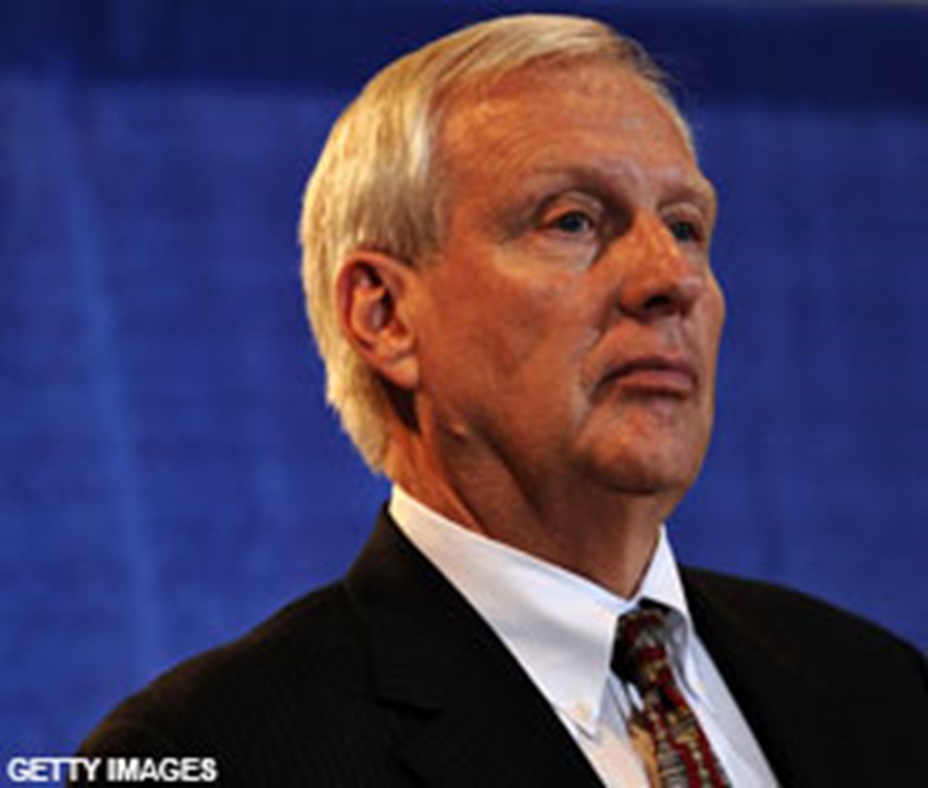Penn State President Rodney Erickson said that the school "could have faced a multiyear shutdown of football and still would have endured additional penalties" had he not accepted the sanctions handed down yesterday by the NCAA, according to a front-page piece by Chip Minemyer of the CENTRE DAILY TIMES. Erickson said, "We had our backs to the wall on this. We did what we thought was necessary to save the program." The football program was put on probation for five years and banned from any postseason appearances for four years. The school also forfeited all wins from '98-'11 and will see a significant scholarship cut for the next four years. Erickson said, "I accepted this consent decree on behalf of the university, knowing that if we did not accept the sanctions we most surely would have faced the death penalty for football over multiple years and the prospects of additional sanctions. I felt, after conferring with board leadership and others, that it was in the best interest of the university to accept the sanctions that were offered rather than have the death penalty imposed on Penn State." Erickson called the penalties an "unprecedented set of sanctions by the NCAA," but added the punishment, "while severe, does still allow us to play." Oregon State Univ. President & NCAA Exec Committee Chair Dr. Edward Ray in an interview with ESPN "denied the NCAA had threatened Penn State with a football suspension in any way." Ray said, "But I can tell you categorically, there was never a threat made to anyone about suspension of play if the consent decree was not agreed to" (CENTRE DAILY TIMES, 7/24).
THE DEATH PENALTY: NCAA President Mark Emmert said that a multiyear suspension of the football program "was 'vigorously discussed' with members" of the Division I BOD. Emmert said that ultimately, PSU's "willingness to take its medicine -- commissioning, accepting and making public the damaging Freeh Commission report, and accepting massive NCAA penalties without due process -- helped save the school from a complete shutdown of football for a season or longer" (SPORTS.YAHOO.com, 7/23). Ray said, "The overwhelming vote -- we took a vote -- in both the executive committee and the Division I board was not to include a suspension of play or death penalty, and then we quickly moved to the menu of actions that you heard about. ... At no time did we ever have a discussion about, 'If they don't do this, we're going to do that.' That is a conversation that never occurred" (OREGONLIVE.com, 7/23).
ROLLING OVER? In Pennsylvania, Charles Thompson noted Erickson "drew fire from alumni and trustees Monday for signing the consent agreement." Some argued that Erickson "caved to outside pressure and should have fought for lesser penalties or reserved Penn State’s right to appeal." Alumni trustee Anthony Lubrano "quickly proclaimed himself 'outraged' that Erickson agreed to the penalties without a full board review." Sources said that Lubrano and other dissidents "aired their feelings during a mid-morning conference call with Erickson," but they and other sources said that with the consent agreement "signed there was little legal recourse with the NCAA" (Harrisburg PATRIOT-NEWS, 7/24). Lubrano said, "It's fair to say that a number of board members are upset. ... My view is that we rolled over and played dead" (USA TODAY, 7/24).
SPANIER WEIGHS IN: Former PSU President Graham Spanier in a letter to university trustees said that he was "led astray by the school's general counsel and that given his background as a therapist, sociologist and victim of child abuse, he would never have 'turned a blind eye' to reports of sexual abuse." In Pittsburgh, Paula Reed Ward notes the three-page letter, delivered to the board Sunday, "also calls the Freeh report into Penn State's conduct in relation to the Sandusky matter 'egregious in its incomplete and inaccurate reporting of my 2011 discussions with certain trustees, advice and reporting from the university's general counsel, and the recounting of unfolding events in November 2011.'" Spanier wrote, "(The) report is full of factual errors and jumps to conclusions that are untrue and unwarranted" (PITTSBURGH POST-GAZETTE, 7/24).




